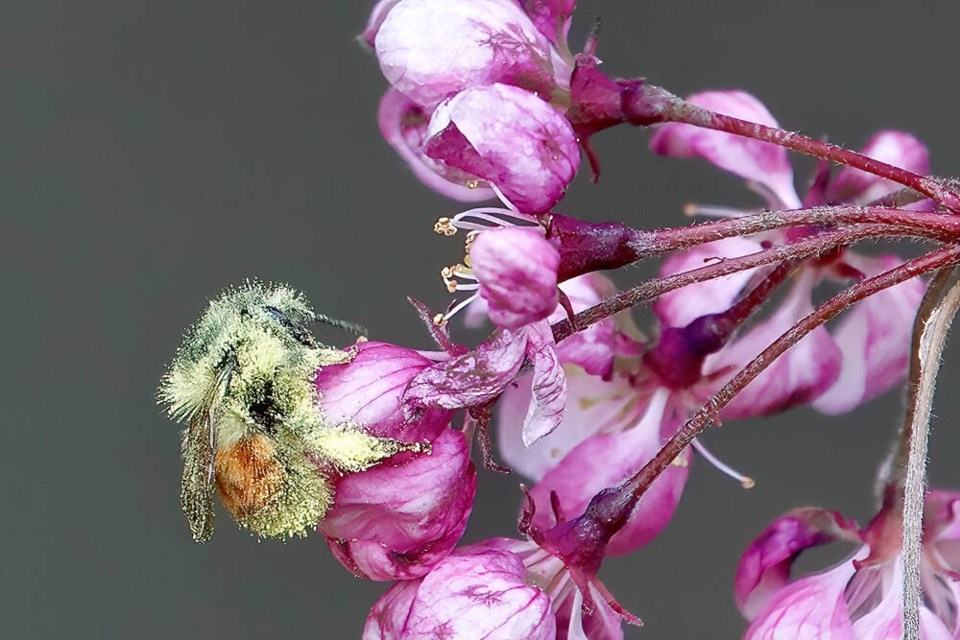Have you ever dreamed of singing for your supper?
If so, you might want to take notes from our amazing native bumble bees.
Female bumble bees collect pollen from flowers by “humming” a middle-C note with their wings. The vibration shakes pollen from the flower onto the bee. This type of pollination is called “sonication” or “buzz pollination,” and the females of all bumble bee species can do it, including those of the 30-plus species found in B.C. (Male bumble bees, like the males of all bee species, do not collect pollen.)
The ability to “sing” the pollen out makes bumble bees much better at pollinating than the non-native honey bee, which pollinates by clambering over the face of the flower so the pollen sticks to it. This not only captures less pollen than buzz pollination, but it only works well with open-faced flowers. With other flower shapes, such as bells, honey bees are poor pollinators.
Here’s the kicker: plants that can be pollinated best by bumble bees include blueberries, cranberries, potatoes, peppers, and pumpkins—many of Delta’s most important food crops.
Sadly, the status of bumble bees is far from healthy. One quarter of North American bumble bee species, including some here in Delta, face some risk of extinction.
You can help bumble bees survive by avoiding pesticides and growing plants that bumble bees like. One powerhouse plant is catmint (Nepeta species). A rough count of bumble bees on catmint plants in Ladner’s Butterflyway Garden last summer showed more than 300 bumble bees on just a dozen plants.
Other excellent bumble bee–friendly plant choices are lupine, foxglove, agastache (a.k.a. hyssop), and goldenrod. If you are planting annuals, choose nasturtium over petunias: bumble bees love them.
Editor’s note: Nature Notes is a monthly column presented by the Delta Naturalists and their community partners. For info on monthly meetings and more see: www.dncb.wordpress.com and www.facebook.com/DeltaNats/.





